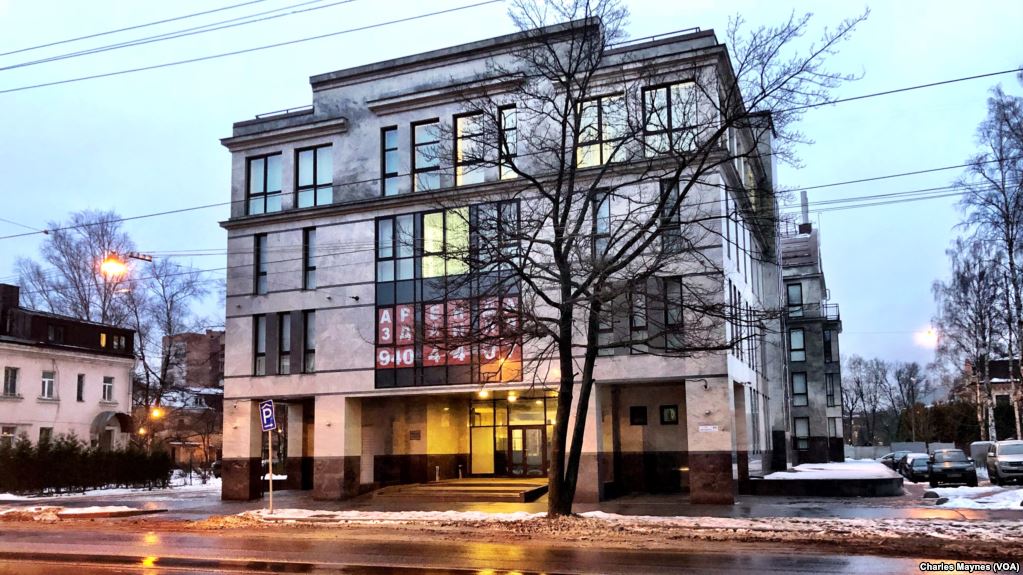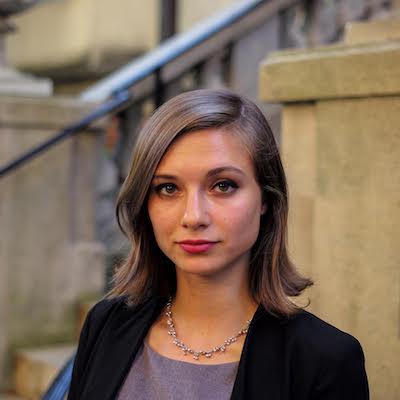Russian Electoral Interference: 2018 Midterms Edition
“I hope that all those Internet Research Agency f*ckers will be sent to gitmo.”

Published by The Lawfare Institute
in Cooperation With

“I hope that all those Internet Research Agency f*ckers will be sent to gitmo.”
So wrote a Russian national allegedly working for a Russian influence operation on social media on Feb. 16, 2018—the day that Special Counsel Robert Mueller handed down a indictment of figures connected to the Internet Research Agency (IRA). The IRA indictment alleged that Russian nationals used troll farms to illegally influence American electoral politics by radicalizing all sides of the American landscape. It now turns out, at least if you believe the Justice Department, that the person wrote this was actually part of the same project. Indeed, suggesting that the IRA defendants get sent to Guantanamo is now alleged by the Justice Department to be part of the very same influence operation as the IRA troll farms themselves.
This is according to a Sept. 28 criminal complaint unsealed by the Justice Department on Friday, Oct. 19, against yet another member of the supposed conspiracy: one Elena Alekseevna Khusyaynova, who is alleged to have been the chief accountant in the Russian operation to influence the 2016 presidential election and the 2018 midterm elections upcoming in the next three weeks.
The complaint was released publicly mere hours after the Office of the Director of National Intelligence (ODNI) issued a statement along with the FBI, the Justice Department, and the Department of Homeland Security on “Combating Foreign Influence in U.S. Elections,” warning—among other things—of “ongoing campaigns” to “influence vote perceptions and decision making in the 2018 and 2020 U.S. elections.” It is not explicit that the actions were coordinated—but it doesn’t seem like a coincidence either.
The complaint is a rich document and is worth examining in depth—and it raises questions the document itself does not answer. As a preliminary matter, the mechanics of the case are curious.
First, even though the conspiracy alleged in the complaint is overtly linked to the activities of the Russian troll farm described in the February 2018 indictment brought by Robert Mueller, this case is being handled not by the special counsel’s office but instead by the U.S attorney’s office for the Eastern District of Virginia and the Justice Department’s National Security Division. This is consistent with the handling of the criminal complaint against accused Russian spy Maria Butina, which also involved an alleged Russian influence operation and was run out of the U.S. attorney’s office for the District of Columbia in conjunction with the National Security Division, and not out of Mueller’s shop. As with that case, the decision to handle the matter in this fashion appears to reflect a decision on Mueller’s part to spin off a variety of matters to other prosecutors, rather than keep them in-house and thus build an ever-expanding prosecutorial empire.
Second, it is notable that the Justice Department charged Khusyaynova in a criminal complaint accompanied by an affidavit laying out the facts of her offense—not an indictment. To secure an indictment, which can serve as the basis for an arrest and prosecution, a prosecutor must present evidence that persuades a grand jury that there is probable cause to believe a defendant committed a crime. By contrast, a criminal complaint is how the government itself, without a grand jury, alleges that it has probable cause to believe a defendant violated a criminal statute—which often makes it a more agile way to secure an arrest. As of this writing, it is not clear whether Khusyanynova is in custody, but the decision to proceed in this fashion, particularly in combination with the sealing of the charges for three weeks, suggests that some law enforcement action was anticipated or took place, either domestically or overseas.
The case docket and the affidavit reflect that authorities obtained an arrest warrant on Sept. 28, the same day that the Justice Department filed the complaint, suggesting that the government may have seen an opportunity to bring Khusyaynova into custody and quick action was thus required. Reporting on Friday indicated that Khusyaynova is not currently in U.S. custody. One possibility is that the anticipated opportunity never materialized. Another possibility is that the situation involves a foreign law-enforcement partner. Still another is that Khusyaynova may be cooperating.
Third, the document contains an incredibly rich trove of factual information. It reflects a large quantity of documentary material, almost as though investigators had seized a computer or a hard drive or had access to email accounts. The procedural posture of the case combined with the apparent investigative depth of the document indicates, one way or another, that there is at least one more shoe to drop.
So who is Khusyaynova? According to the government, she has been employed by a constellation of limited-liability companies linked to Russian oligarch Yevgeny Prigozhin—whose companies are said to have funded the IRA troll farm—and she has worked as the chief accountant of an overarching Russian influence campaign known as “Project Lakhta” since around April 2014. (Lakhta is an area of St. Petersburg, where Khusyaynova is apparently a resident and where the Internet Research Agency was located.) The government asserts that Khusyaynova headed the “finance department” of the project and was responsible for managing nearly all its financial aspects. Over the last four years, according to the government, she prepared hundreds of financial documents, managed at least 14 bank accounts, and was responsible for dispersing funding to various Project Lakhta campaigns.
Khusyaynova is charged under 18 U.S.C. §371, which criminalizes conduct by which “two or more persons conspire … to defraud the United States, or any agency thereof in any manner for any purpose” and “one or more of such persons do any act to effect the object of the conspiracy.” To “defraud the United States” has a specific meaning under U.S. case law: According to Hammerschmidt v. United States, defrauding the United States means “to interfere with or obstruct one of its lawful governmental functions by deceit, craft, or trickery, or at least by means that are dishonest.” And the defendant in this case is accused of impeding the lawful authority of the Department of Justice to enforce the Foreign Agents Registration Act and of the Federal Election Commission to enforce the Federal Election Campaign Act.
The criminal charge is nearly identical to the first count in the February indictment of the Internet Research Agency and associated entities. Those defendants, too, stand accused of obstructing the enforcement of FARA and FECA in violation of Section 371—though neither Khusyaynova nor the IRA defendants are accused of violating FARA or FECA per se. Under what is called a Klein conspiracy—a concept analyzed in depth in this context by Emma Kohse and Benjamin Wittes in the wake of the IRA indictment—a defendant can be guilty of defrauding the United States under Section 371 without being proven guilty of other criminal conduct. The defendant, rather, merely has to conspire to obstruct a lawful government function.
The Alleged Conspiracy
The aim of the alleged conspiracy, according to the complaint, was “to sow division and discord in the U.S. political system, including by creating social and political polarization, undermining faith in democratic institutions, and influencing U.S elections.” According to the government, members of the conspiracy described their activity as “information warfare against the United States,” which was carried out through a sophisticated social media campaign. (Notably, the Feb. 16 Russian troll farm indictment referred to that campaign also as “information warfare.”) Members of the alleged conspiracy operated fictitious social media accounts, pages, and groups designed to amplify polarizing topics in the U.S.—everything from gun control, to the Confederate flag, the debate over football players standing during the national anthem, race relations, LBGT issues, the Women’s March, and immigration, the government alleges.
The complaint describes remarkably detailed strategic plans from Project Lakhta, whose alleged members received instructions, as translated in the complaint, to inflame “political intensity through supporting radical groups, users dissatisfied with [the] social and economic situation and opposition social movements.” They also sought to, in the words of the alleged conspirators, “effectively aggravate the conflict between minorities and the rest of the population.” As stated in the complaint, members of the conspiracy were given detailed instructions on how and when to target certain populations and what news stories to amplify, the government states.
To finance Project Lakhta, and to conceal the specifics of the project, the government alleges that Concord paid out funds to Lakhta under unassuming labels related to “software support and development.” Concord would also allegedly distribute funds to the project through roughly 14 bank accounts held in the names of a number of Concord-affiliated LLCs—the same 14 banks accounts that were mentioned in the February 2018 IRA indictment as means by which Concord concealed funding to Project Lakhta. Khusyaynova herself, according to the government, has been an employee of various entities associated with Project Lakhta since at least 2014.
The government asserts that a complicated network of organizations is involved in this conspiracy. At the top of the network, according to the government, is Prigozhin, a Russian oligarch who controls Concord Management and Concord Catering (known collectively as “Concord”), which provided funds to Project Lakhta. That project, in turn, was allegedly operated through a number of Russian entities, including the Internet Research Agency.
Notably, it is not clear from the complaint how closely this network is supposedly connected to the Russian government. The Justice Department described Prigozhin as “closely identified with President Vladimir Putin,” and even notes his nickname: “Putin’s Chef.” Additionally, Project Lakhta is described as a “broader Russian effort,” but the document does not make the explicit link between the Russian government and the conspiracy. This is in contrast to the GRU hacking indictment from July 13 of this year, where the government explicitly alleges that the defendants are Russian government actors.
The conspiracy itself was headed by an overarching “management group,” the government contends, and then broken down into various departments: “analysts,” “design and graphics,” “search-engine optimization,” and the like. Khusyaynova allegedly headed the finance department, and the complaint refers to her as the chief accountant for the project. Included in the document are detailed references to reports that Khusyaynova allegedly filed on a monthly basis between January 2016 and July 2018, including monthly budgets for Project Lahkta’s operations—typically around $1 to $2 million U.S. dollars. At least one of these reports included a section on “USA, EU” activities that referenced expenditures for “Instagram,” “Facebook advertisement,” and “Activists,” the government alleges.
In total, the government alleges, Khusyaynova’s reports reveal that the project spent more than $35 million between January 2016 and June 2018, according to the complaint. From January to June 2018 alone, Concord records reveal more than $60,000 in spending on Facebook advertising, $6,000 on Instagram advertising, and $18,000 on “bloggers,” the complaint alleges.
Disinformation Efforts
Starting in 2015, the complaint alleges, the conspiracy created thousands of social media and email accounts that it would use to create and spread political content over the next three years. These accounts were registered under false names such as “Helen Christopherson,” “Bertha Malone” and “Rachell [sic] Edison,” some of which created politically aligned social-media groups, and others of which posted inflammatory political content reaching millions of social media users. Throughout 2016 and 2017, the conspiracy allegedly created a score of Twitter accounts to post content designed to appeal to both left- and right-leaning audiences. One account allegedly amassed more than 33,000 followers.
On a number of occasions, these fake accounts reached out to U.S. persons and U.S. organizations to coordinate on specific events and campaigns, the government contends. In July 2017, “Helen Christopherson” allegedly messaged an individual associated with “U.S. Organization 1” to collaborate on an advertising campaign in Washington D.C. and Eastern Virginia that went on to reach almost 60,000 people. In that same month, the account “Bertha Malone” messaged “U.S. Person 2,” according to the complaint, to request assistance in boosting a particular message on Facebook. U.S. Person 2 eventually agreed to help, the government claims, despite asking at one point, “please tell me I’m not going to jail for this.” (From the information provided, it is not clear why this person would have been concerned about incarceration.)
The social media accounts remained active through at least May 2018, according to the government. The messages the accounts allegedly posted on Facebook and Twitter span the ideological spectrum, saying everything from, “Retweet if you think Donald Trump deserves a Nobel Peace Prize” to “Blue Wave coming!”
Interestingly, a number of the messages referenced the ongoing special counsel investigation into Russian interference. The day that Mueller issued the IRA indictment, one account tweeted, “The DOJ indicted 13 Russian nationals...still think this Russia thing is a hoax or a witch hunt? Because a lot of witches just got indicted.” A separate, right-leaning account criticized the idea of Russian influence campaigns more broadly, saying, “We didn’t vote for Trump because of a couple of hashtags shilled by the Russians.”
What to Look For
There’s been a lot of attention of late to the Justice Department practice of not taking major steps on politically sensitive matters in the immediate run-up to election. The actual policy is narrower than people imagine it to be, but it offers another reason to believe that there must be some backstory behind this case. It seems unlikely that absent some law enforcement exigency, the Justice Department would have gone public with charges like this in the immediate run-up to the midterm elections in which Russian interference in the last round of elections are very much on people’s minds. It’s possible, of course, that making these charges public are a way of reinforcing the public statements released by the intelligence community on ongoing operations. It seems more likely, however, that an opportunity arose that required immediate law-enforcement action. As the procedural history of this matter unfolds over the next few days, we are likely to learn a lot about why it became public at the time and in the manner that it did.
Look for the answer to one set of questions in particular: Where is Elena Alekseevna Khusyaynova, and is she a free woman?








.jpg?sfvrsn=676ddf0d_7)

